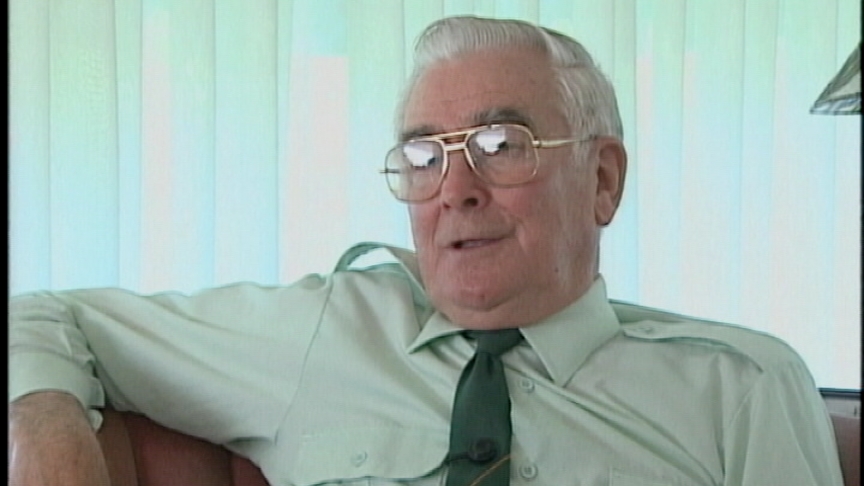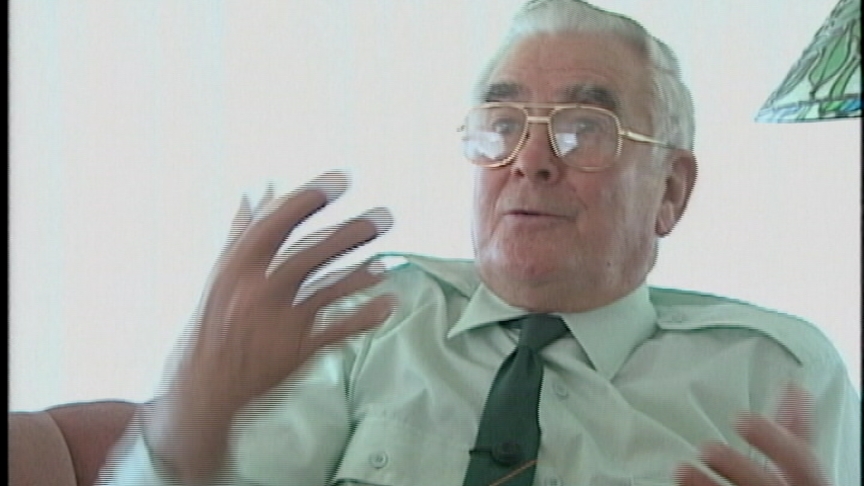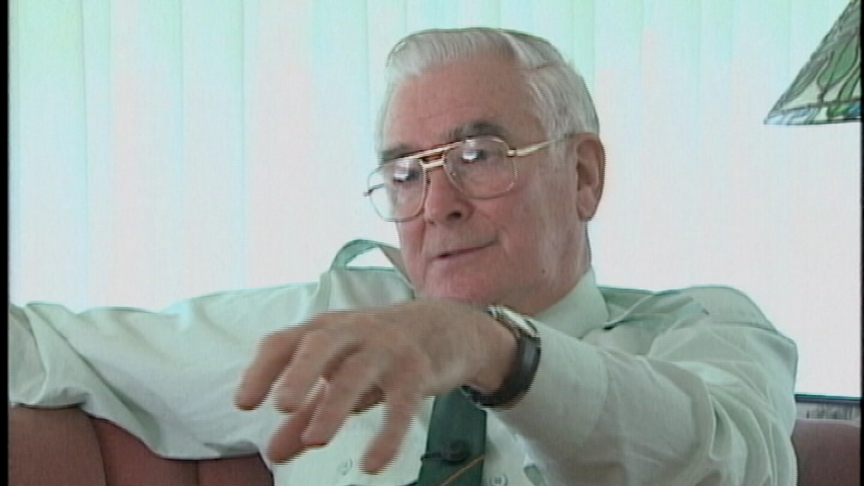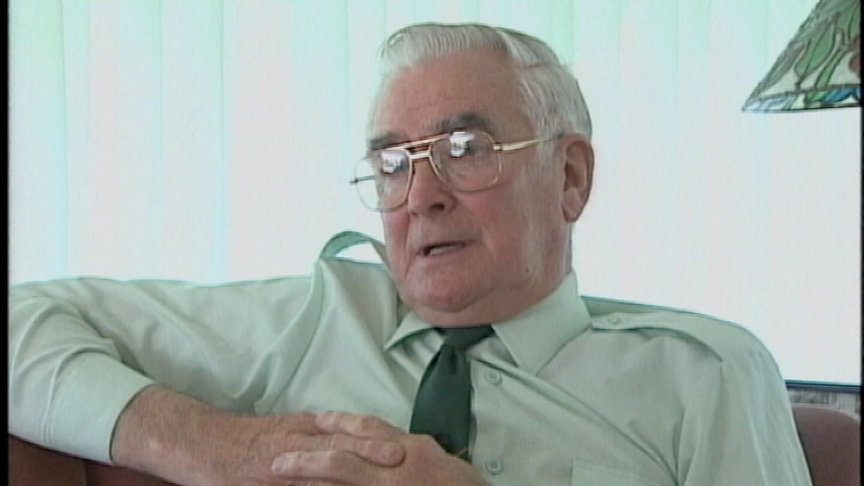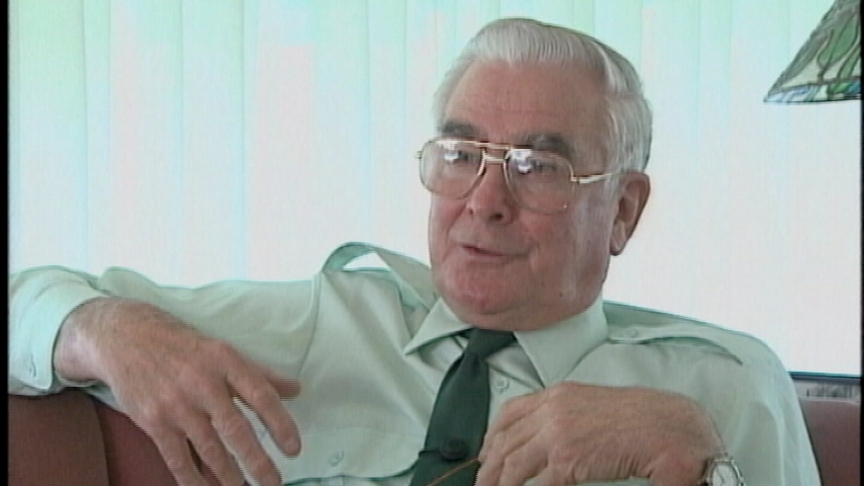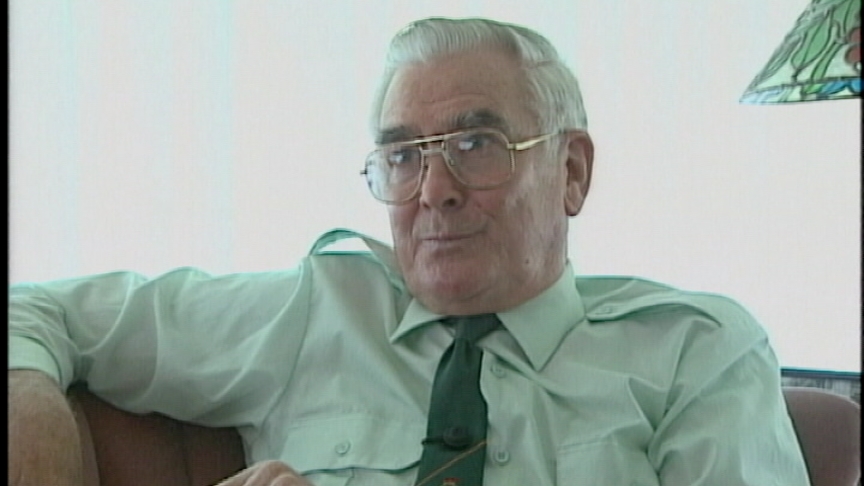There was a little bit of snow on the ground because I could see
our tracks and I walked up to the tree and said, “Okay Corporal
Mullin, this is your line. From here you go straight out that
direction towards (whatever it was— a clump of something or a
bump) but right along there.” And then the other two Corporals I
said, “Back about seven or eight yards is your line and then your
line.” So Mullin, who was to lay the first row, had the best time
of any team in training and therefore won the honour of
laying the line of wire, the fence closest to the enemy. That
was kind of the competition we had set up when we were doing our
training. That the team that did it best and fastest would have
the honour of laying it closest to the Chinese. So we could
see our footprints and there was going to be no mistake because
Mullin would go back to that tree and get started. We went back
up then and picked up the team with the initial load of stores.
We carried our own stores down initially. We had our own weapons
with us. I had a fire plan that I could call on to fire in case
of an emergency or interference, and we had a couple of outposts
put out in front of us by the British that were supposed to
be in place in the event of something happening they would give
us early warning. We loaded up and started down and as we went
down this very steep front of this feature, down into the
valley, we got not too far from the tree and I heard a little bit
of a commotion behind me. Part of it was a long way behind. It
was the Koreans struggling with the stores and not being all that
quiet but there was sort of a thud and a gasp behind me and I
turned around and looked back and saw that my signaller, who was
about third in line, had fallen, fourth in line.
So I said to Mullin, I said, “There’s the tree, you know where
to start to lay out the fence.” And he said, “Yeah, okay sir.” So
he took two steps, I took about two steps back and there was a
god awful roar. And what happened was that Mullin stepped on a
mine and he was about a foot from that damn tree in among the
footprints where we’d already sort of milled around that tree
when we were talking about laying out the fences. And for
some reason the four of us who’d been there earlier had not
stepped on that mine but Mullin in leading off going further to
do the job stepped on that damn mine. He was killed
instantly. It was a “Bouncing Betty,” we referred to them as,
and they were tripped with a small charge which lifted them
four or five feet in the air and then they exploded again and
what they did was they tended to spread stuff latterly around.
And because we were in such a straight line behind him I guess
he took almost the full force of it because we couldn’t find any
trace of his head except a small piece of a jawbone, in
collecting him. And the man behind him was a man by the name of
Batsch who was also on the ground and moaning when I ... I was
just about opposite him, just behind him when the explosion went
off and I could see Mullin was beyond help and I went to Batsch
and Batsch was gasping for breath at this particular point
in time and I said, “Where are you hurt?” And he, all I could
hear was sort of breathing sounds, nothing. So I
pulled apart his parka that he was wearing and I put my hand in
and his chest was just a mass of blood. It turns out that only,
and I didn’t know it at the time, but only one piece of shrapnel
had entered Mullin’s, or Batsch’s chest, but it had severed a
major artery to the heart. So he was dead within, I don’t know,
seven or eight or ten seconds of the explosion and I was still
trying to work with him. He was, sort of died in my arms.
Here we were, before the job had even started we had two men
killed.



